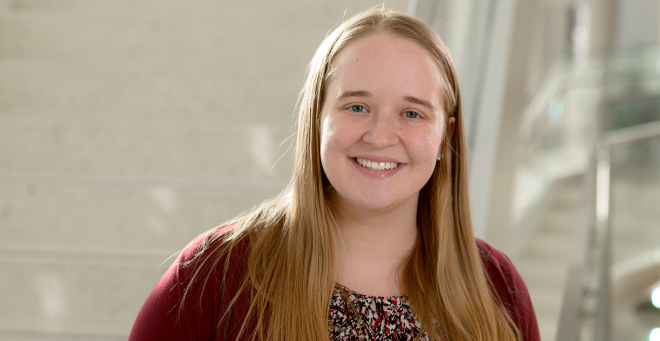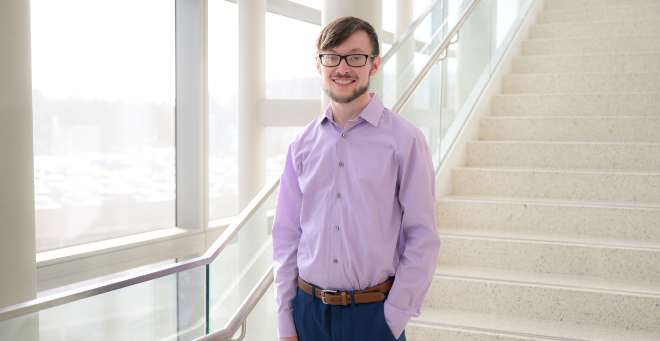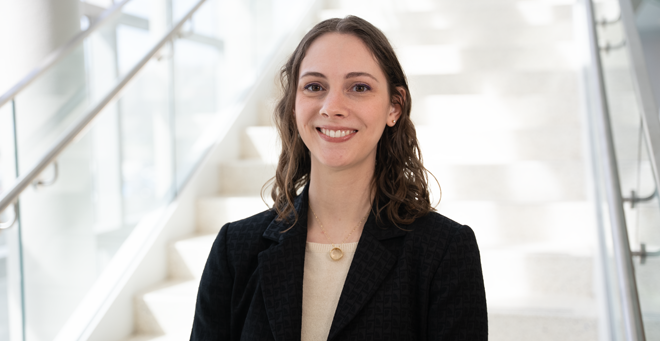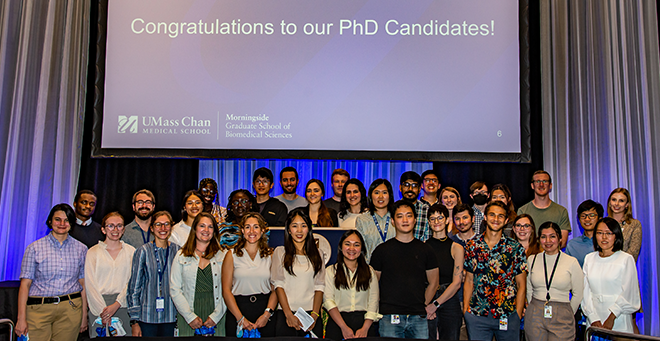
PhD candidate Jacob Stillman has been awarded a prestigious Ruth L. Kirschstein National Research Service Award Individual Predoctoral Fellowship to further his research on remyelination, the process by which new myelin sheaths are generated around axons in the central nervous system, targeting diseases such as multiple sclerosis that disrupt how the brain and body communicate. The funding is from the National Institute of Neurological Disorders and Stroke.
Stillman is investigating the role of endosomal toll-like receptors in remyelination in the lab of Dorothy Schafer, PhD, associate professor of neurobiology. Multiple sclerosis occurs when the immune system attacks and breaks down the protective covering or myelin, found in the brain and spine, that insulates and protects neurons. This is known as demyelination.
“During demyelination, brain resident innate immune cells called microglia eat myelin debris and dying cells to clear lesions for remyelination,” said Stillman. “As people get older, or the disease switches into a progressive phase, demyelinated lesions aren’t able to remyelinate efficiently. We found that as microglia eat myelin debris, this can trigger antiviral signaling pathways and harm the ability of the central nervous system to remyelinate.”
Dr. Schafer said Stillman’s research is advancing the field.
“Microglia in the brain eat cell debris, which normally reduces inflammation and promotes regeneration, but Jacob’s work shows for the first time that overeating cell debris in the diseased brain can cause the opposite. This offers a completely new target for therapeutic intervention,” she said.
Stillman said he is grateful to study at UMass Chan because of its nurturing learning environment.
“When I interviewed here, I was struck with this great sense of collaboration,” said Stillman, who grew up outside of New York City and studied biology at the University of Pennsylvania. His love of music and science were inspired and nurtured by his grandparents.
“My dad’s mother was a pianist who did a lot of concerts and teaching. As soon as she got her hands on me, I was at the piano,” said Stillman. “When you’re approaching pieces of music, especially classical music, it’s a puzzle to interpret. Science and music are similar when it comes to thinking and problem solving. My mom’s dad was a dentist. I had a microscope and we used to look at the neurons and pond water. I was interested in science from a very young age.”
Stillman aspires to pursue a central nervous system immunology-related postdoc experience and become a professor.



